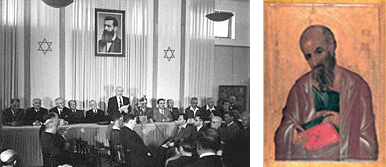The Controversy Surrounding the 2008 Good Friday Prayer in Europe: The Discussion and its Theological Implications
DOI:
https://doi.org/10.6017/scjr.v3i1.1483Keywords:
Good Friday, salvation, mission, Europe, Germany, Italy, France, England, Poland, Kasper, Bertone, Benedict XVI, RatzingerAbstract
The Good Friday prayer “for the Jews” that was promulgated on February 4, 2008 triggered significant controversy. This article reviews how this controversy expressed itself in European countries in various ways and with differing intensity. It was eventually resolved at the level of political dialogue. Cardinal Kasper’s important commentary on the prayer, publicly approved by Secretary of State Tarcisio Cardinal Bertone, calmed the public discussion. But this did not resolve the theological questions raised by the prayer, the focus of the second half of the article. When in today’s Church, the words of prayers that are in accord with Scripture call to mind negative experiences in the Christian-Jewish history, can they be used as the Church’s prayer? Can the two Good Friday prayers for the Jews co-exist, that of the 1970 missal and that of 2008? The fundamental theological problem raised by the two different prayers is not the issue of mission, but rather the question of salvation. How does one resolve the tension between the fact that God’s covenant with the Jewish people has not been revoked and the universal salvific significance of Jesus Christ? Is it possible to create a Christian-Jewish bridge by referring to Jesus Christ? These questions remain unresolved, but theologians are now addressing them.
Downloads
Published
How to Cite
Issue
Section
License
Copyright (c) 2015 Studies in Christian-Jewish Relations

This work is licensed under a Creative Commons Attribution 4.0 International License.
Please navigate to the Copyright Notice page for more information.

